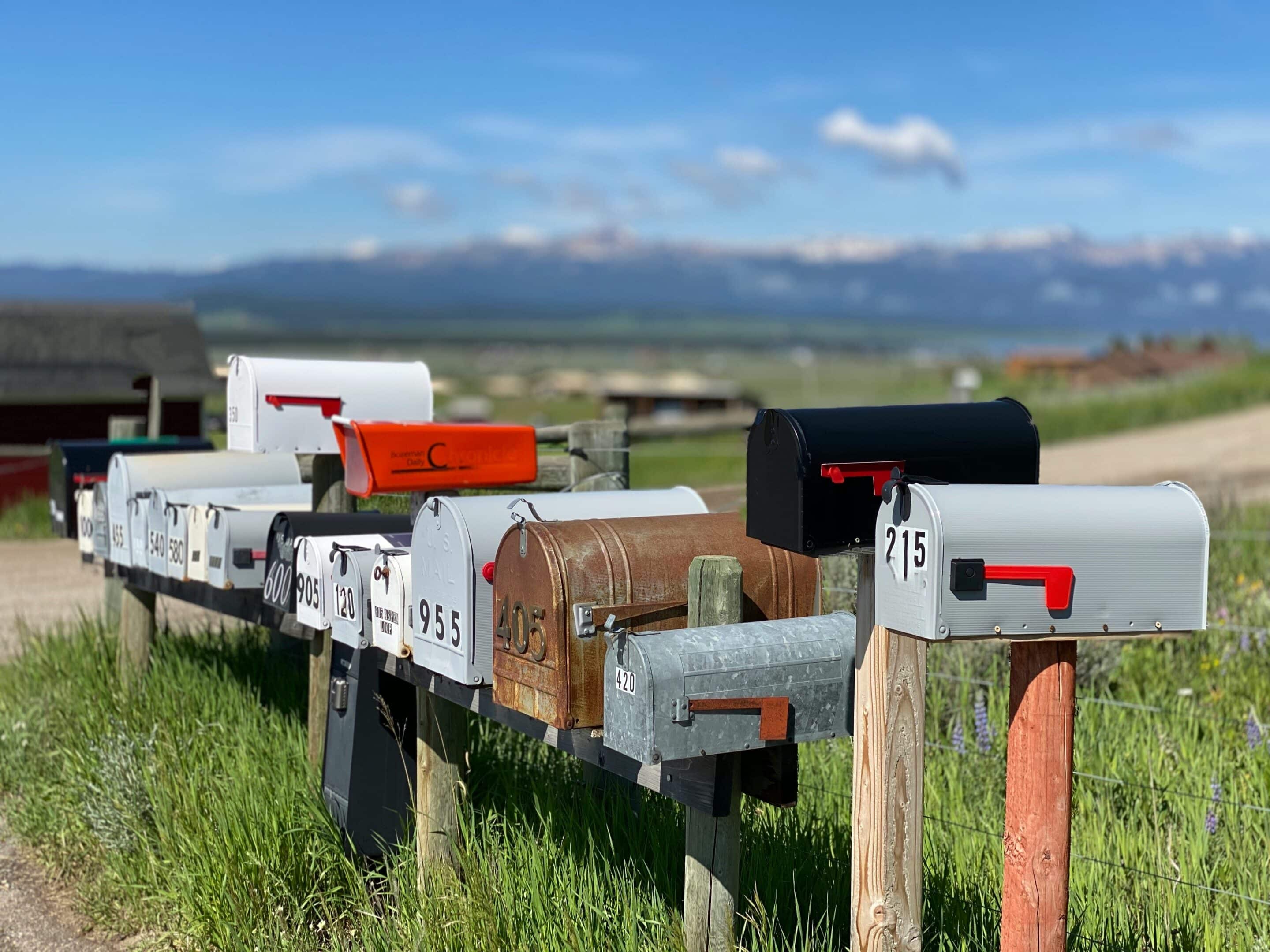Should I Put My Address on My Resume?

Wondering whether or not to include your address on your resume? This guide will help you make the decision.
Editor’s note: This post was originally published in 2022; it has been updated for accuracy and comprehensiveness.
By: Reem Abouemera | Contributor for Let’s Eat, Grandma
The address on resume question is one that comes up time and time again, and for a good reason.
For a long time, the standard resume format included an applicant’s home address.
But in today’s job market, is this still necessary?
The short answer is no, you no longer need to include your full address on your resume.
In this guide, we’ll explain why and give you some tips for what to do instead.
That way, when it’s time to update your resume, you’ll have a solid game plan.
If you’re still doubting whether or not to include your address on your resume – maybe because you’ve heard that you should from somewhere else – here are a few reasons why it’s not only an outdated practice, it’s a bad idea.
Want personalized advice about whether you’ve included your location on your resume correctly? Send it to us for a free resume review.
Ready for more job search help?
Sign up for a free Senior Writer Resume Critique to see what's holding you back from landing interviews. One of our top professional resume writers will give you personalized feedback on the top 3 items you can improve based on our expert practices!

Photo by Mathyas Kurmann on Unsplash
3 reasons you shouldn’t have your address on your resume
1. It’s not necessary to make a hiring decision
Addresses once served an important purpose on resumes. In the days of snail mail, employers would often corrrespond with you via physical mail to your address to let you know you got the job, send you paperwork, etc.
But in today’s digital world, this is no longer necessary because of this neat little thing called email. An employer will not communicate with you via snail mail, and if for some reason they do need your physical address, they will ask for it later in the process.
“But what about location-based searches in the ATS (Applicant Tracking Systems)?” you might say. While employers can search for your application using location filters, you only need your city and state for this – we’ll get to that in a second.
It’s safe to say that including your address on your resume will provide no boost to your chances of getting hired.
2. It can limit your job options
Apart from it simply being unnecessary, what you might not realize is that including your full address can actually limit your job options. This is especially true if you live in a rural area or small town.
When you include your full address on your resume, employers can use it to unfairly rule you out, especially if you’re relocating and don’t mention it (we’ll talk about this further down.)
For instance, your address can provoke discrimination based on your neighborhood. If you live in a high-crime area or a wealthy neighborhood, your address could work against you – you can be assumed to be too rich or too poor for the job.
The same goes for your commute time. If you live far from the city or in a rural area, employers might assume you’ll always be late or will want to work remotely.
While this is illogical and unfair, it happens. So if you want to give yourself the best chance of getting hired, it’s best to leave your address off your resume so that recruiters won’t be able to make these assumptions (whether consciously or unconsciously).

Photo by Paula Hayes on Unsplash
3. It’s a personal detail that can put you at risk
When you include your address on your resume, you’re also revealing a personal detail about yourself that could put you at risk. In today’s world, it’s important to be mindful of your online presence and security with so much of our lives being digital.
While, yes, online portals are mostly secure, there’s always a possibility that systems can be hacked. And if your address falls into the wrong hands, you could be at risk for identity theft or even physical harm through stalking and burglary.
Since your address doesn’t benefit you anyway, it’s best to avoid this risk and not include your address on your resume. That way, you can rest assured knowing that your personal information is safe and secure.
How to list your location instead of address on your resume
While you don’t need to share your full address with a potential employer, it is important to include your general location on your resume. Employers want to know where you’re located. If it’s an office job, they want to know you live in the area, and if it’s a hybrid or remote job, they still may have location requirements for tax or communication purposes. It’s not uncommon for companies to require remote employees to live within a certain region.
So with all that being said, how do you list your location instead of your address on your resume? Here are a few tips to help you update your resume.
Use your city and state in your header
Instead of including your full address, you can simply list your city and state in your resume header. This will be enough for recruiters to search for you using their ATS.
And if you’re applying to jobs that are local, recruiters will know that you’re close by – they don’t need your exact address. Even if you do list your address, it’s likely that recruiters will only look at your city and state anyway. No one will search for your street name (unless they’re trying to discriminate against you, which we obviously don’t want!)
So, simply put, your city and state will suffice for location-based recruiter searches.
Your header will look something like this:
List large cities or metropolitan areas instead of suburbs
If you live in a suburb or small town, you might want to list the most nearby major city in your header. This will help you appear in more recruiter searches, as they’ll be able to find you when they search for candidates in that major city.
For example, say you live in Broomfield, Colorado – a suburb of Denver. You can list your location on your resume like this:
That way, when recruiters search for candidates in the Denver area, your resume will come up. If you just list Broomfield, Colorado, it’s possible your resume won’t appear in their search results. So including the nearest major city is always a good idea.
One exception – don’t do this if you’re not willing to drive to the city for a job!
Should you include your Zip Code on your resume?
Naturally, the next question is – should you include your zip code on your resume? Similar to the address on resume question, the answer is no. You definitely can include it, without the full harm that your full address could cause, but it’s not necessary.
Here at Let’s Eat, Grandma, our expert resume writers typically don’t include zip codes either. The main reason is that it could still lead to discrimination if recruiters use your zip code to find out how far you live from the office.
And, as mentioned earlier, if you live in a rural area or far from the city, recruiters might assume you’ll always be late or want to work remotely. So including your zip code could still put you at a disadvantage.
What if you’re relocating?
If you’re relocating, you have a few options for sharing your location.
If you don’t know where you want to go, write “Open to Relocation” next to your current location.
If you know where you’d like to end up, you could take that a step further and write “Relocating to” and the city and state of your desired location.
For example, if you’re relocating from Detroit, Michigan to Los Angeles, California, your resume might look something like this:
Remember that recruiters sometimes use an ATS to search for resumes with keywords. So if you’re relocating, this way they’ll be able to find you when they search for candidates in that desired location.
This means if you’re applying for a job in another city, it’s best to follow the second strategy: Including the location of the target job is the best way to ensure that recruiters will find you when they’re looking for candidates in that area.
What if you’re a remote worker?
As mentioned above, if you’re applying for a remote job, you still need to include your location on your resume.
Including your city and state (or the nearest major city) on your resume is essential because of compensation and hiring laws. For example, if you live in California but are applying for a job that’s based in New York, the company will need to know that so they can follow the appropriate laws.
Believe it or not, employment laws vary significantly from state to state. So to avoid any legal complications, always include your city and state on your resume – even if you’re applying for a remote job. That said, you can include (Remote) or (Open to Remote) to indicate your remote preference.
Pro Tip: Some remote jobs are only remote for certain states. So make sure to check the job posting to see if there are any restrictions before applying. You’ll see statements such as “This is a remote role for candidates based in the United States” and similar. In this case, having your city and state on your resume is even more important.
The bottom line: Don’t include your address on your resume
To recap, the answer to the address dilemma is no – you shouldn’t include your full address on your resume. Just list your city and state (or the nearest major city) instead.
Doing so will ensure that recruiters can find you when they search for candidates in that area and that they know which laws to follow regarding compensation, hiring, and other policies. With those factors taken care of, there’s really no need to include your full street address on your resume.
Even Zip Codes can be left off as they could still lead to discrimination if recruiters use them to find out how far you live from the office. So unless a job posting specifically asks for your Zip Code, there’s no need to include it.
That’s all you need to know about whether or not to put your address on your resume! If you’re unsure about whether you’ve included your location on your resume correctly, feel free to send it to us for a free resume review.
Ready for more job search help?
Sign up for a free Senior Writer Resume Critique to see what's holding you back from landing interviews. One of our top professional resume writers will give you personalized feedback on the top 3 items you can improve based on our expert practices!




